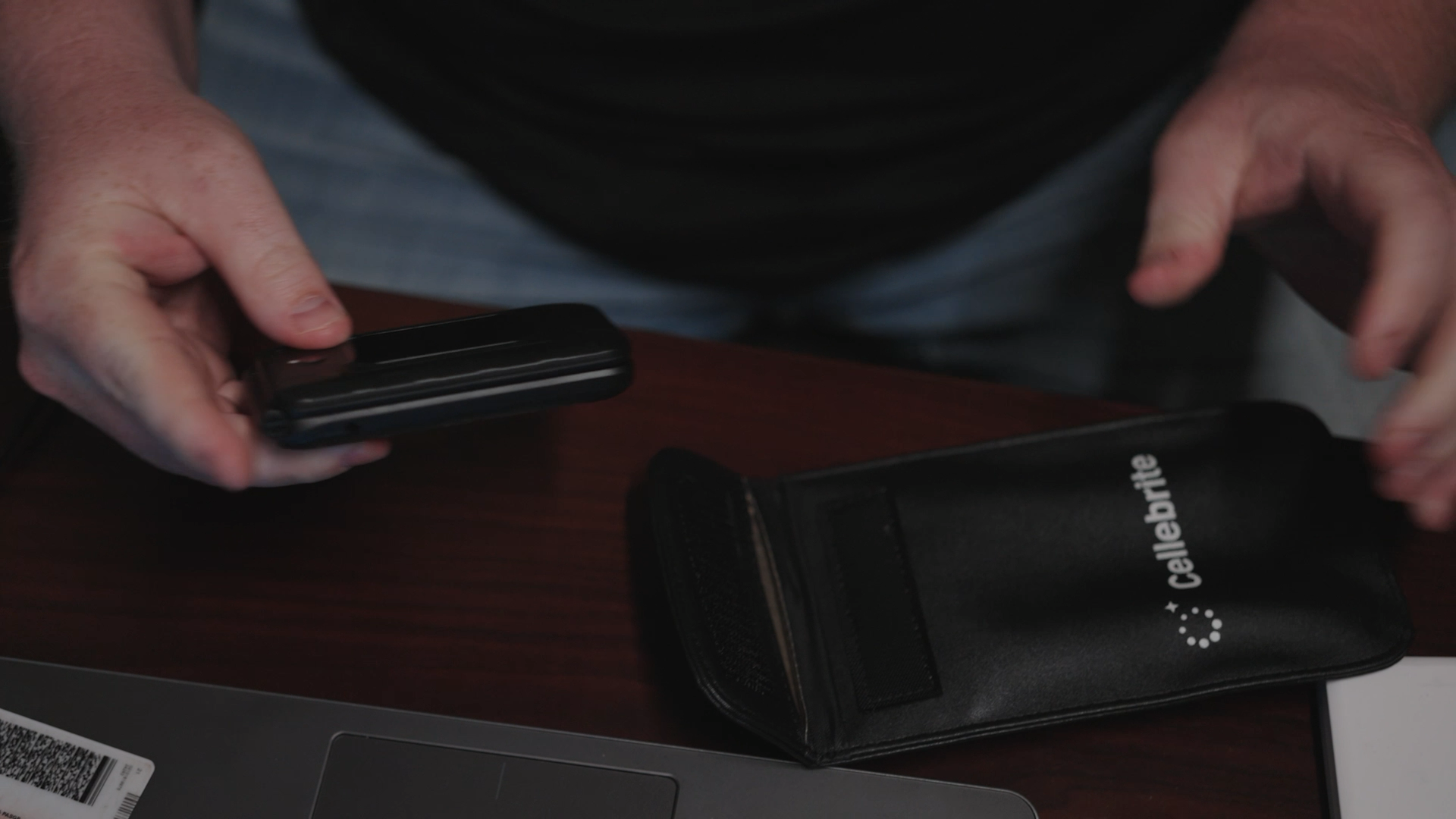
Digital Evidence Secures Man’s Conviction of 39 Life Sentences, Longest in Arkansas History
When John Jones set out to begin his career, law enforcement was not on his list of options – life, it turns out, had other plans. While studying to become a minister in Nebraska, personal tragedy struck. “When you’re nine hours from the house, you just want to come home,” he said. Jones decided to drop out of college and move back home to Oklaholma.
During a Sunday church service, the 21-year-old Jones met a police chief who asked him if he’d like to become a police officer. “And I was like, man, I mean, not really,” Jones said with a laugh. But he agreed to meet with the police chief the next day and the rest is history. “I’ve stayed with it because I just, it’s probably cliche answer, but it makes you feel like you’re making a change in your home.”
Jumping in Feet First
 At first, Jones, now an Agent with the Clark County Sheriff’s Office, about an hour outside of Little Rock, was not part of the digital forensics unit. A trip to the Dallas Crimes Against Children Conference in 2018 opened his eyes. “They were talking about this thing called geofences. And I was like, what in the heck is a geofence?” He learned everything he could at the annual conference and put his knowledge into action as soon as he got back to Arkansas. “We had a burglary, and I did a geofence and it literally was probably the most picture perfect geofence you could have done. He was the suspect, it was no doubt. We interviewed him, it broke him, he pled, and the DA was like, ‘learn more about this kind of stuff.’”
At first, Jones, now an Agent with the Clark County Sheriff’s Office, about an hour outside of Little Rock, was not part of the digital forensics unit. A trip to the Dallas Crimes Against Children Conference in 2018 opened his eyes. “They were talking about this thing called geofences. And I was like, what in the heck is a geofence?” He learned everything he could at the annual conference and put his knowledge into action as soon as he got back to Arkansas. “We had a burglary, and I did a geofence and it literally was probably the most picture perfect geofence you could have done. He was the suspect, it was no doubt. We interviewed him, it broke him, he pled, and the DA was like, ‘learn more about this kind of stuff.’”
Now, Jones is part of a six-person task force that covers three counties and three major police departments. Jones said the lab is ramping up and while they’re a small team, they have no backlog to speak of. That’s because they prioritize which cases their team takes on, “not that your lawnmower being stolen is not important, but it’s not important enough to backlog us,” Jones said.
Using advanced digital forensic solutions like Cellebrite Inseyets is crucial to Jones’ team. Since they serve a large area and multiple departments, efficiency is key to moving the case forward and when it’s presented in court. “TV has changed the way juries think,” Jones said. “So, we’ve kind of seen that if we don’t show that we tried something digital, they feel like we didn’t try.”
The Longest Sentence in Arkansas History
In 2022, the task force worked on a landmark case where the suspect, Barry Walker, is now serving nearly 40 life sentences. It started when a group of girls told authorities they’d been molested by the former physician and the assault had been captured on video.
Police recovered more than 60 devices from Walker’s home with a search warrant, including cellphones, tablets and a full, three-terabyte hard drive. Extraction of the devices revealed Child Sexual Abuse Material (CSAM). One of the devices had 1.27 million homemade pictures and videos. Investigators were able to determine that many of the victims were sedated at the time they were pictured or recorded, “We had victims that didn’t even know they were victims. And it was all because of what we found electronically,” Jones said.
Walker was arrested in June 2022 and plead guilty just four months later in October due to the overwhelming digital evidence. “He pled to 39 lives plus 1,710 years, which is probably unheard of. And he had to, there was no doubt we had so much evidence from the electronic side that he had no other option about the plea,” Jones said.
Walker’s sentence is the longest in the history of Arkansas and it stands as the sixth longest in the U.S. Jones was recently awarded a ‘Voice for the Voiceless’ Cellebrite Digital Justice “Justy” Award for his work in this case.
Related: 10 Winners Awarded “Justies” at Cellebrite’s First-Ever Digital Justice Awards
Staying Ahead of the Game with Training
 A key part of Jones’ role is ongoing training, which he completes with Cellebrite. So far, he’s become certified in the Cellebrite Advanced Smartphone Analysis (CASA) course, Certified Evidence Repair Technician – Forensic (CERT-F) course and is working on his Cellebrite Certified Mobile Examiner (CCME) certification.
A key part of Jones’ role is ongoing training, which he completes with Cellebrite. So far, he’s become certified in the Cellebrite Advanced Smartphone Analysis (CASA) course, Certified Evidence Repair Technician – Forensic (CERT-F) course and is working on his Cellebrite Certified Mobile Examiner (CCME) certification.
He said understanding the inner workings of digital forensics only makes a case stronger and more defensible. “If I told you there was some investigator technique that you could go to a house and get more evidence than any other technique, like you would jump on it. I want to be able to get that. Being able to get that evidence, like it kind of keeps you drawn into it because you don’t want to miss that kind of stuff,” he said.
